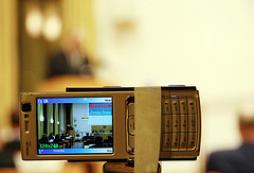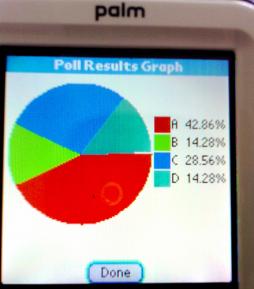ngos
Posted by SteveWolak on Nov 05, 2009
Betavine Social Exchange data sheet 4977 Views
Organization that developed the Tool:
Problem or Need:
Betavine Social Exchange meets the needs of NGOs with ICT requirements.
Brief Description:
Betavine Social Exchange brings together NGOs and other community organisations with mobile phone developers and support partners.
Tool Category:
Is a web-based application/web service
Key Features :
- Challenges posted by NGOs and community organisations.
- Solutions developed by mobile developers.
- Support provided by support partners.
Organizations Using the Tool:
Number of Current End Users:
Number of current beneficiaries:
Support Forums:
http://crowdtalk.ning.com
Is the Tool's Code Available?:
Is an API available to interface with your tool?:
Posted by sharakarasic on Nov 19, 2008
On day three of MobileActive ’08, I attended a session led by engineer Blaine Cook, formerly Twitter’s Chief Architect.
Cook summarized what the group was looking for:
“We would like an ongoing, up-to-date tool. A migration tool that keeps us moving from one social network to the next so NGO’s can move and migrate from platform to platform. We need the ability for any one organization to connect with any other organization.”
Mixit was mentioned as a useful tool, but Cook noted cross-border interoperability issues: Mixit requires GPRS which isn’t that credible across borders. Using a SIM card costs a lot to text across borders. Cook suggested that there could be a network where you send to SIM chip in Uganda from Uganda, but set up a network with nodes to dramatically cut costs of cross-border activism.
Cook said that it costs around $20,000-30,000 for a short code in the US and you can send as many SMS’s as you like. He mentioned that Twitter got a bill for $37,000 in Egypt for only 6000 Twitter users.
Posted by sharakarasic on Nov 19, 2008
On day two of the MobileActive ’08 conference in Johannesburg, I attended a session entitled "In the Elevator With Operators: How to Pitch New Service Ideas to Mobile Companies” that focused on how to pitch mobile development projects that present both a social and a business opportunity. It was moderated by Jesse Moore of the GSMA Development Fund, and panelists were Pieter Verkade, the CMO of MTN South Africa, and Vuyani Jurana, executive director at Vodacom SA.
At some point, people with new mobile ideas in the development field need to get mobile operators involved so services can scale from small pilot projects to sustainable efforts that service many more people. As Moore said: “If you’re losing money, scale is your enemy. If you’re making money, scale is your friend.”
Posted by KatrinVerclas on Nov 11, 2008
In our ongoing and ever-expanding series of how-to resources for NGOs and grassroots organizations using mobile technology in their work, we are releasing a new primer on "Mobile Surveillance." Our reviewer, Melissa Loudon, gives an overview of mobile surveillance risks and tips and tools on how to prevent surveillance for secure communications.
Posted by admin on Mar 24, 2008
Streaming video from your mobile almost feels like magic. A video taken on your mobile phone appears, in real time, on the web and even allows users to interact with the mobile phone user through real-time chat functions. "It's immediate, it's there, and it's one click away," Flixwagon CEO Eran Hess told the BBC in a recent video interview. "It's very easy to do."
MobileActive tested two streaming video applications, Qik and Flixwagon, to see how they measured up for use by nonprofits and advocacy organizations that want to document and feature video content in real time. Lastly, we discuss how streaming video can be used for social impact.
Posted by KatrinVerclas on Jan 29, 2008
We are occasionally commissioned to write introductory articles about the mobile revolution and implications for NGOs for various publications. Here is one broad overview of some areas where mobiles are deployed in civil society.
Cellphones have become the most ubiquitous communication device in the hands of human beings. There are an estimated 3.5 billion mobile phones in use and there is coverage in even remote corners of the world. Cellphones have revolutionized not just the way we work and organize within cultures and societies, but have the potential to change how NGOs (non-governmental organizatios) operate.
Mobile phones are already experimentally used in multiple ways by NGOs. We at MobileActive.org have been tracking how organizations in areas such as health and disease prevention, economic development, humanitarian relief, democratic participation, and advocacy are using mobile phones to make their work more effective and efficient.
Following are a few examples of what we have seen and where we think mobile phones have potential to be used more strategically by NGOs.
Posted by KatrinVerclas on Jan 02, 2008
Happy New Year, MobileActives!
To ring in the New Year, MobileActive is conducting, with the UN Foundation and the Vodafone Group Foundation, a global survey of more than 25,000 civil society groups about how these organisations are using mobile phones in their work.




